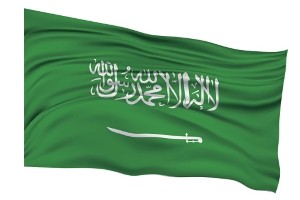A few months ago, we published a blog discussing how Nigerian international students were being affected by low oil prices. The drop in world prices has caused the Nigerian government to cut back on international education sponsorships. Unfortunately, it seems that the Saudi Arabian government is going down the same path and being forced to cut spending for international education.
Since 2005, when Saudi Arabia inaugurated the King Abdullah Scholarship Programme (KASP), it has become one of the leading countries that sends students abroad. According to the 2015 IIE Open Doors Report, the number of international students coming to the U.S from Saudi Arabia was a little under 60,000 for the 2014-2015 academic year. From 2005 to 2015, a 10 year span, the number of Saudi students attending U.S. institutions has seen a rise of almost 2,000%. This clearly shows the impact that KASP has had on its student population; however, with falling oil prices Saudi Arabia has also felt the repercussions with a US$98 deficit in 2015. In contrast with Nigeria, the Saudi Arabian government is not cutting funds but making KASP sponsorships more selective, which will most likely limit the number of scholarships awarded in the future.
What are the new limitations
- One of the biggest programs, which many Saudi scholars choose, are the Intensive English Programs (IEP) in the U.S. Many of these programs are year-long, but now KASP scholars will only be eligible to receive funding for 6 months of language training. In addition to the restricted timeline, Saudi students will also lose the the liberty of choosing which IEP they wish to enroll in; new regulations will place the decision in the hands of the Saudi Cultural Mission.
- One of the biggest blows and warning signs has been the cancellation of the International Exhibition & Conference on Higher Eduation (IECHE). This conference, which has been held in Riyadh for the past 6 years, has proved to be one of the largest international recruiting events in the country.
- New eligibility requirements is where most of Saudi youth will feel the limitations. In the past, Saudi students could apply for KASP before they chose a university to study abroad at or retroactively once they had already begun their foreign programs. However, now funding for those who apply after already attending a foreign university will be limited to those students who are enrolled in one of the top 50 academic programs in their field or one of the world’s top 100 universities. The list of which is also at the discretion of the Saudi Ministry of Education.
For extra tips on how to pay for your degree abroad, make sure to stop by our Funding Your Education Overseas section for more posts on scholarships and your international loan options.





